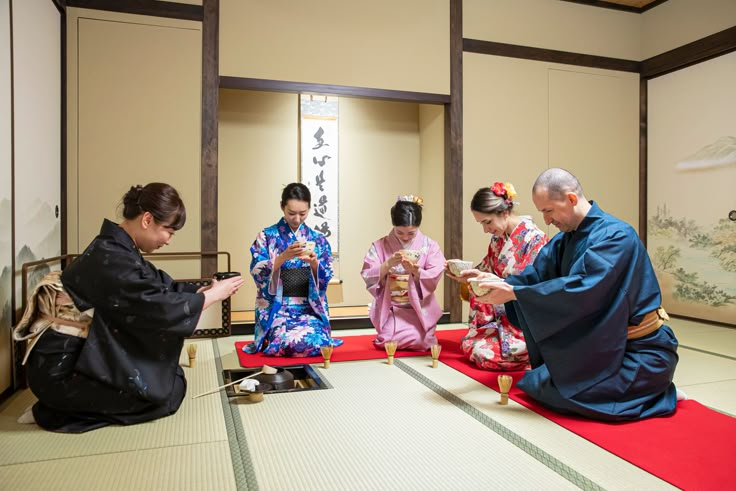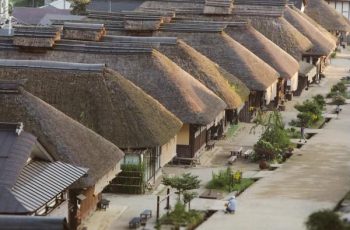No one. The Land of the Rising Sun. Japan is known as the Land of the Rising Sun, a name originating from its special geographical location. Situated at the easternmost point of the Eurasian continent, Japan is one of the first places in the world to greet the dawn. Since ancient times, the Japanese have called their country Nippon, meaning “the origin of the sun.” This name has become a global symbol of the nation.
Japan covers approximately 378,000 square kilometers, similar in size to California, and is an archipelago of over 6,800 islands. The four main islands—Honshu, Hokkaido, Kyushu, and Shikoku—account for 97% of the land area. Its terrain is mountainous and volcanic, with Mount Fuji being the highest and most iconic peak, representing both cultural heritage and a popular tourist destination.

Japan has a temperate climate with four distinct seasons. Spring brings cherry blossoms, painting the landscape in pink. Summer is hot and humid, filled with fireworks and street food. Autumn showcases fiery red maple leaves, resembling a second cherry blossom season. Winter, with its snowy landscapes, is ideal for skiing. This seasonal variation makes Japan a year-round tourist attraction.
With around 125 million people, Japan ranks 11th in global population, though nearly 30% are over 65 years old, making it the fastest aging nation in the world. This demographic shift presents challenges in labor and healthcare.
The official language is Japanese, written using three scripts: Kanji, Hiragana, and Katakana. Despite its complexity, Japanese is among the most studied languages globally, thanks to the popularity of anime, manga, and pop culture.
Modern Japanese women are financially independent and career-driven. Over 70% of women of working age have stable jobs. Marriage is increasingly seen as a choice, not a necessity, with many marrying later. A 35-year-old single woman who works, travels, and invests is seen as successful, not “on the shelf.” Foreign men appeal to many Japanese women due to their emotional expressiveness, something often lacking in local counterparts.

Japan is one of the safest countries in the world. Crime rates are low, especially for serious offenses. Children commute to school alone, and lost items are frequently returned. This safety is deeply rooted in education and a societal emphasis on honor.
Instant noodles, invented by Momofuku Ando in 1958, are a national staple and global phenomenon. Japan offers hundreds of noodle variations, and even has the Cup Noodles Museum in Yokohama, where visitors can design their own cup.
Geishas are living symbols of Japanese art, trained in traditional dance, music, and conversation. Contrary to Western misconceptions, they offer artistic performance and companionship, not sexual services. The path to becoming a geisha is rigorous, starting as a teenager and requiring years of training.
Apologizing in Japan is a cultural ritual. Bows vary in depth depending on the level of apology. In extreme cases, such as public scandals, people may shave their heads as a sign of deep remorse, a practice rooted in samurai traditions.

Japan is a technological powerhouse, home to companies like Toyota, Sony, and Panasonic. It leads in robotics, flash memory, and supercomputing. The country invests heavily in research and development, shaping the future of global technology.
You can rent relatives or partners in Japan for social events. These professional actors are trained to portray convincing roles, offering emotional support in a society grappling with loneliness.
Love hotels are a unique part of Japanese culture, offering themed rooms and privacy for couples. With over 20,000 across the country, this industry is larger than the anime sector and generates over $40 billion annually.
Okinoshima is an island off-limits to women, considered sacred in Shinto beliefs. Only purified men can visit, and they must not reveal what they see. The island has been a center of worship and trade since ancient times and is now a UNESCO World Heritage Site.

Japan has more than 27,000 natural hot springs, or onsen, seen as places for physical and emotional healing. Bathing is done nude and in silence, promoting equality and respect for shared space.
Iconic destinations include Mount Fuji, Osaka Castle, the Bamboo Forest in Kyoto, and the volcanic Owakudani Valley. These sites offer natural beauty, history, and cultural depth.
Japan hosts over 300,000 festivals annually. From cherry blossom viewings to summer street dances and winter lantern displays, festivals are a vibrant expression of Japanese culture.
Japanese cuisine ranges from refined dishes like sushi and tempura to adventurous items like raw horse meat and unusual ice cream flavors. Presentation, harmony, and surprise define the culinary experience.
Despite its high cost of living, Japan offers a safe, clean, and modern lifestyle. Rent, food, and transportation can be expensive, but the quality of life makes it worthwhile.
Japan is a land where tradition and innovation coexist beautifully. Whether you’re drawn by its culture, technology, or cuisine, Japan offers a rich and unforgettable experience.

